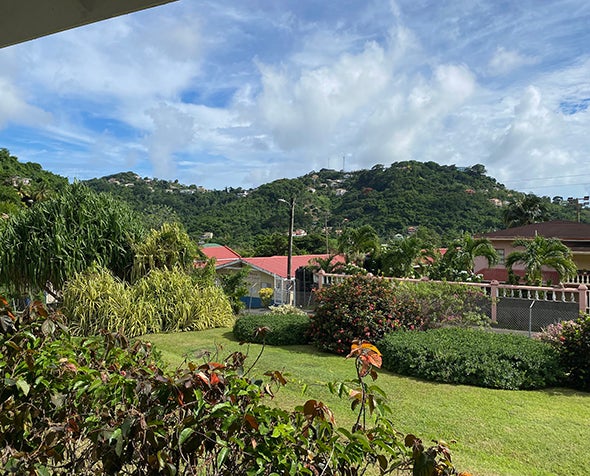A Call to Serve: PsyD Grad Utilizes Past Military Experience in Work With Veterans
Einav Nahum considers herself a compassionate clinician who approaches treatment from a trauma-informed relational framework.

For Einav Nahum, military culture has always felt like home.
Nahum grew up in Israel, where she completed her two-year mandatory military service in the Israeli Defense Forces (IDF) when she was 19 years old. During that time, she worked as a search and rescue non-commissioned officer.
She’s also seen similarities between Israeli culture and U.S. military culture—similar emphases on collectivism, companionship and brotherhood.
But it wasn’t until she moved to Boulder with her now-husband and started working as a case manager at a homeless shelter that Nahum realized she could lean on that culture and her identity as a veteran to help veterans living in the United States.
“I think it was so easy to work with (veteran) clients because I felt an immediate understanding of their experiences, versus those who did not have that military experience,” she says.
That connection also “opened the door” to other work helping first responders, refugees and other individuals who had experienced trauma.
Nahum will soon graduate with a doctorate in clinical psychology (PsyD) with a specialty in military psychology from the University of Denver’s Graduate School of Professional Psychology. She received her master’s degree in clinical psychology from DU in 2021.
A ‘talented, conscientious, mindful’ therapist
Katy Barrs (MA ’04, PsyD ’07), an associate clinical professor in the military psychology specialty and clinic director of the Sturm Center, describes Nahum as the most talented student therapist she’s worked with during her career.
“She is extremely talented, conscientious, mindful, connected—and was really that way at the very beginning of her training,” says Barrs, who was also Nahum’s clinical supervisor.
Over the course of the program, Nahum continued to develop positive relationships with her clients, colleagues and supervisors, and found both her voice as a clinician and found the populations that she loved working with.
“She is so talented when it comes to trauma work, and she's going to help so many people in so many levels of our systems over the years, I don’t doubt that,” Barrs says.
Nahum considers herself a compassionate clinician who approaches treatment from a trauma-informed relational framework. Going through the PsyD program during COVID, while also becoming a mom during that time, greatly impacted her as a person and a mental health provider.
In addition to Barrs, Nahum says two influential figures during her time in the program were the late Peter Buirski, who was the dean and a longtime faculty member in GSPP, and former advisor Rohini Gupta.
Gupta and Barrs, as well as Assistant Professor Erica Adkins, served as advisors on Nahum’s doctoral research paper, “Music Therapy and Evidence-Based Treatments: Combined Approaches for Military Populations.”
Nahum’s paper focused on the effectiveness of using integrative creative approaches, specifically music therapy, in evidence-based treatment in the field of military psychology. Thanks to a grant provided by the Caring for Denver Foundation, the psychotherapy, assessment and music therapy services Nahum provided to the veteran client were free of charge at the Sturm Center.
Nahum completed an internship at Aurora Mental Health and Recovery just before graduation, where she provided trauma-informed care to the refugee and immigrant population. After graduation, she will start her post-doc at the Denver nonprofit Ardent Grove Foundation, which provides low-cost therapy services.
Not only will she supervise doctoral students and provide therapy services, but Nahum will also receive training in ketamine assisted therapy so she can offer it at the clinic for low-income and Medicaid clients.
“I really feel honored every time someone opens up and sits in front of me and feels comfortable enough to do that,” she says.












